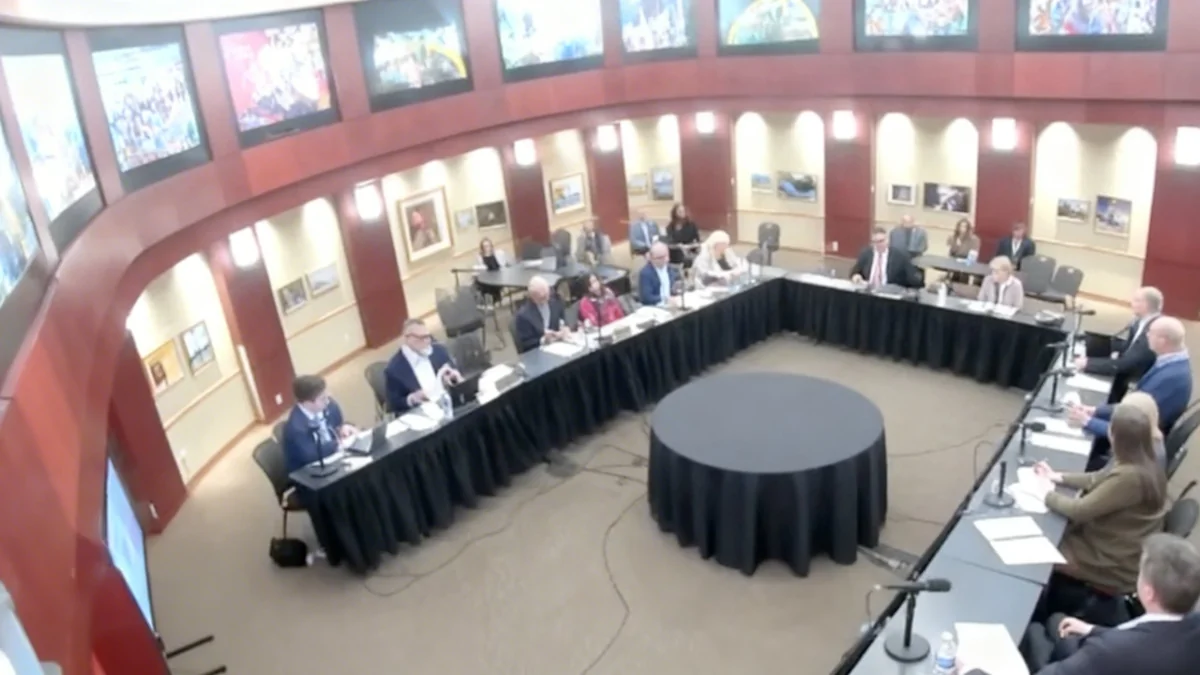A federal judge has issued a preliminary order directing the U.S. Department of Defense to return a significant number of books to the libraries of several of its schools. The ruling is a key development in an ongoing legal challenge brought by military families and the American Civil Liberties Union concerning censorship and First Amendment rights within the military's education system.
The decision, handed down on October 20 by U.S. District Judge Patricia Tolliver Giles, specifically addresses materials removed from Department of Defense Education Activity (DoDEA) schools. The injunction prevents the department from further removals while the case proceeds and mandates the immediate restoration of the previously removed content at the specific schools involved in the lawsuit.
Key Takeaways
- A federal judge granted a preliminary injunction against the Department of Defense, ordering the restoration of removed books in specific military-run schools.
- The lawsuit was filed by the American Civil Liberties Union (ACLU) on behalf of six military families concerned about censorship.
- The injunction applies to five schools attended by the children of the plaintiffs and is in place as the litigation continues.
- The removals were part of a broader effort to eliminate materials perceived as 'woke' from military and educational institutions.
- Nearly 600 books were identified on a list of materials affected by the department's review.
Legal Challenge Over School Library Content
The legal action stems from a lawsuit filed by the ACLU in April, representing military families who opposed the removal of books and curriculum materials from their children's schools. These schools are part of the DoDEA system, which serves over 67,000 children of military personnel across the United States and in 11 other countries.
The families argued that the removal of these materials constituted an unconstitutional act of censorship that infringed upon the First Amendment rights of students. The removals were reportedly initiated following directives aimed at purging perceived "wokeness" from military-affiliated institutions.
The Scope of the Injunction
Judge Giles's ruling on October 20 is a preliminary injunction, a temporary measure intended to preserve the status quo while the court considers the full merits of the case. This means the decision is not final but provides immediate relief to the plaintiffs.
The order is specific in its scope, applying directly to the five schools attended by the children of the military families involved in the lawsuit. It explicitly bars the Department of Defense from any "further removals" of library books or curricular materials at these locations and requires the immediate restoration of all items that have been removed since January 19.
Understanding DoDEA Schools
The Department of Defense Education Activity (DoDEA) is a federally operated school system. Its primary mission is to educate the dependents of U.S. military and civilian personnel stationed around the world. Because they are run by the federal government, their policies on curriculum and library content can be directly influenced by directives from the Pentagon and the executive branch.
First Amendment Concerns at the Forefront
The ACLU has framed the case as a crucial battle against government censorship in public education. The organization celebrated the judge's decision as a significant win for students' rights to access information and ideas without government overreach.
“The censorship taking place in DoDEA schools as a result of these executive orders was astonishing in its scope and scale, and we couldn’t be more pleased that the court has vindicated the First Amendment rights of the students this has impacted,” said Emerson Sykes, a senior staff attorney with the ACLU.
Parents involved in the lawsuit expressed deep concerns about the precedent that could be set by allowing the government to dictate educational content based on political ideology. One plaintiff, Jessica Henninger, a mother with children in the DoDEA system, voiced her fears about the long-term consequences of such actions.
“It’s a slippery slope if you’re going to start saying that the federal government can dictate what is allowed and what is not allowed to be taught to our children,” Henninger stated previously. “You’re opening up the door there to a lot of executive overreach and politicization of an education system, which is just not something that is ever okay.”
What Books Were Removed?
Prior to the injunction, the court had ordered the Department of Defense to release a list of the nearly 600 books that were subject to review and potential removal. The titles on this list cover a wide range of topics, including social justice, race, and LGBTQ+ identity.
The DoDEA system is a significant educational institution, operating 160 schools in 8 districts across 11 foreign countries, 7 states, Guam, and Puerto Rico, serving the children of military families.
Some of the prominent books identified on the list include:
- "A is for Activist" by Innosanto Nagara
- "Being Jazz: My Life as a (Transgender) Teen" by Jazz Jennings
- "From #BlackLivesMatter to Black Liberation" by Keeanga-Yamahtta Taylor
The inclusion of these and other similar titles highlights the nature of the content being targeted, which often deals with contemporary social and political issues. Proponents of the removals have often cited concerns about age-appropriateness or political bias, while opponents argue that removing them silences diverse voices and restricts students' ability to engage with complex topics.
Next Steps in the Legal Process
With the preliminary injunction now in place, the legal battle is far from over. The next phase will involve a hearing on the full merits of the case, where both the ACLU and the Department of Defense will present their complete arguments.
The court will ultimately have to decide whether the book removals violated the constitutional rights of the students. This final ruling could have broader implications for how curriculum and library content are managed across the entire DoDEA system and could set a precedent for future challenges to book bans in federally operated schools.
The Department of Defense has not yet issued a public comment on the judge's order. The case will continue to be closely watched by educators, civil liberties advocates, and military families as it moves forward.





